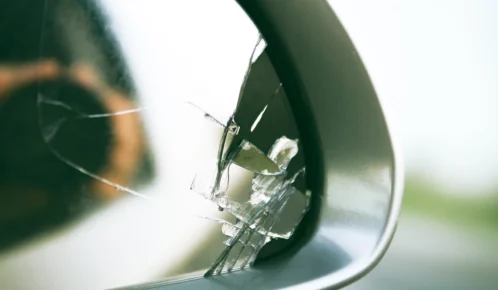If you suffered a personal injury, whether due to a car accident, sip and fall accident, medical malpractice, or other reason, it’s important to file a personal injury claim as soon as possible. The statute of limitations in Illinois sets a limit for how much time you have to file a claim after your injury.
Table of Contents

If you’re not sure whether the statute of limitations has passed, or if you’d like to file a claim, contact Ankin Law at 312-600-0000. An experienced attorney can ensure your claim gets filed before the statute of limitations passes, and explore your options if it has passed.
What Is a Statute of Limitations?
Statutes of limitations are laws that set a maximum time limit for when legal proceedings can be started after an event occurred.
Statutes of limitations don’t only apply to civil cases, but to criminal cases as well, although not all crimes and offenses have statutes of limitations. For example, first degree murder and other serious crimes have no statutes of limitations. That means that even if many years have passed since a murder took place, it can still be prosecuted.
Statutes of limitations are passed by each state’s or jurisdiction’s legislative body. That means they are not the same in all states.
In the context of personal injury cases, if the statute of limitations has passed, it means the victim can no longer file a new lawsuit for compensation.
What Is the Statute of Limitations in Illinois for Personal Injury Cases?
The Illinois statute of limitations for most personal injury cases is two years. That means if you were in a car accident, for example, you should file your claim before two years have passed.
This is laid out in the Illinois Compiled Statutes, which state that actions for damages for personal injury cases should commence within two years from when the damages occurred.
But what constitutes a personal injury claim?
Personal injury cases may include:
- Motor vehicle accidents (including car, truck, motorcycle, and pedestrian accidents)
- Wrongful death suits
- Nursing home neglect and abuse
- Product liability cases
- Premises liability accidents
This doesn’t mean that you can only receive compensation within two years. The two-year limit refers to the time you have to file your case, not for receiving compensation. The most important thing is to start your claim before the two-year limit has passed, which gives you time to file a lawsuit if necessary.
Are There Exceptions to the Statute of Limitations?
The two-year statute of limitations is a general rule, but there are a few exceptions. A personal injury lawyer can help you determine whether your case qualifies for an exception.
You might be wondering, “How is the statute of limitations affected by catastrophic injuries?” Well, you may qualify for an exception, depending on the details of the case.
That’s because one of the exceptions to the statute of limitations is when the victim suffered a legal disability that prevents him or her from filing the lawsuit. A legal disability can include a temporary or permanent mental injuries.
Catastrophic injuries may result in a coma, for example. If that happens, the victim will be unable to file a claim. In such a case, the statute of limitations will generally apply from when the disability was removed – from when the victim regained control of his or her mental capacity. In other words, once the victim recovers, he or she will have two years to file a claim.
The disability doesn’t have to occur at the time of the accident. If it occurred before the two years have passed, but before the victim had a chance to file a lawsuit, the statute of limitations will generally be extended as well.
There are other exceptions as well. If the victim was under 18 at the time of the accident, the statute of limitations doesn’t start immediately. Instead, the two-year clock starts when the victim turns 18.
Another exception will apply if the defendant left Illinois. Let’s say a year has passed, and the defendant suddenly leaves the state, only to return two years later. The period of absence won’t count, and you will still have a year to file your claim upon the defendant’s return.
An exception also applies when you were not aware of the injury. Let’s say you only became aware of your injury three years after it occurred. The two-year statute of limitations will not have kicked in until you learned of your injury. This is important for medical malpractice suits. In such cases, you might not become aware of the malpractice for some time after it occurred. Product liability injuries may also only be discovered at a later date.
However, for such cases, even if the statute of limitations only starts upon discovery of the injury, a statute of repose may still apply.
For example, for wrongful death suits caused by medical malpractice, the statute of repose is four years after the date of the procedure in which the malpractice took place. That means, even if you did not learn about the malpractice until five years later, you will still be unable to file a wrongful death claim due to the statute of repose. The statute of repose may also apply to product liability cases.
When to Hire a Personal Injury Lawyer
It’s important to hire a personal injury lawyer as soon as possible after an injury or when you were aware of the injury. While two years might seem like a long time, delaying your claim is not a good idea.
The sooner you file your claim, the sooner you can get compensation. It also gives the attorney time to collect evidence that could be used for a lawsuit, if necessary.
Personal injury lawyers work on a contingency basis. That means a lawyer will get a percentage of the compensation as payment. In other words, if you don’t win the case, the lawyer will not get paid.
You won’t have to pay anything upfront. In addition, it incentivizes the attorney to do all that is possible to not only win your case, but reach the best settlement possible.
In some cases, an attorney might even bring your case to court. That might happen if an acceptable settlement with the insurance company can’t be reached. If the attorney determines that bringing your case to court will result in better compensation for you, he or she will present your case to the judge.
Consequences of Missing the Statute of Limitations
If you missed the deadline for filing your personal injury lawsuit, the defendant can easily get the suit dismissed by filing a motion to dismiss. This motion will have a legal basis: the expiration of the statute of limitations. Thus, the judge will grant this motion, and your case will be thrown out.
While the defendant must file this motion for your case to get thrown out, it’s almost a guarantee that he or she will do so.
Ordinarily, personal injury cases don’t end up in court. Instead, personal injury lawyers in Chicago typically try to negotiate a settlement with the defendant or his or her insurance company.
A settlement circumvents the need to go to trial, which can cause you unnecessary stress and require additional resources. It’s beneficial for the insurance company as well, since it would need to hire lawyers and spend more resources if the case were to go to court.
However, settlements work because there is the threat of a lawsuit and the possibility of a trial. Insurance companies settle because they’re trying to avoid a trial. If two years have passed, there is no longer a threat of a trial or lawsuit, which means insurance companies no longer have any incentive to settle.
If two years have passed, don’t despair. Depending on your case, an exception may apply, and you may still file for compensation.
Contact Ankin Law for help. An attorney can examine your case and advise you on the best course of action. If you recently suffered an injury, don’t delay. Get in touch with a lawyer as soon as possible to avoid delays in receiving compensation. If the two-year deadline is coming up, it’s critical that you get in touch with an attorney without any further delay.



